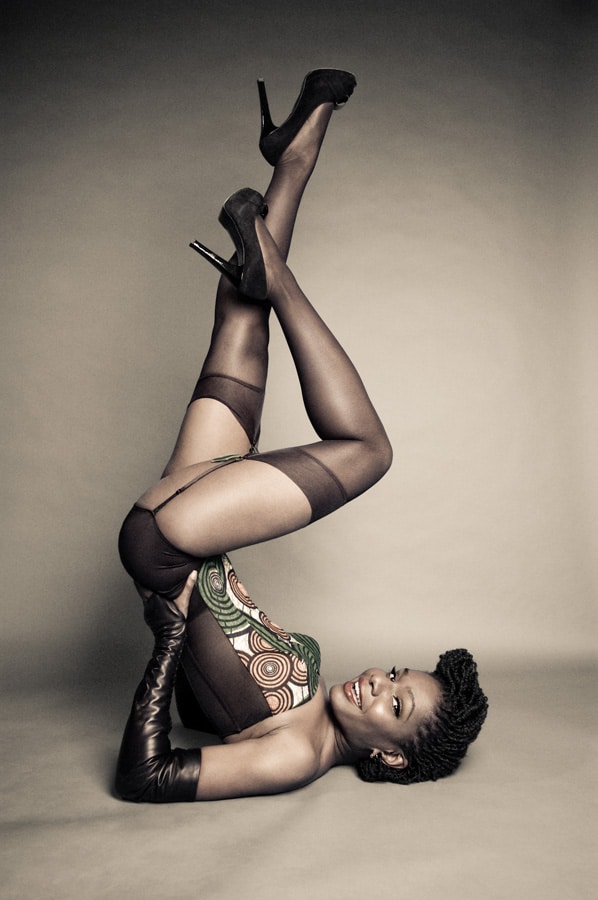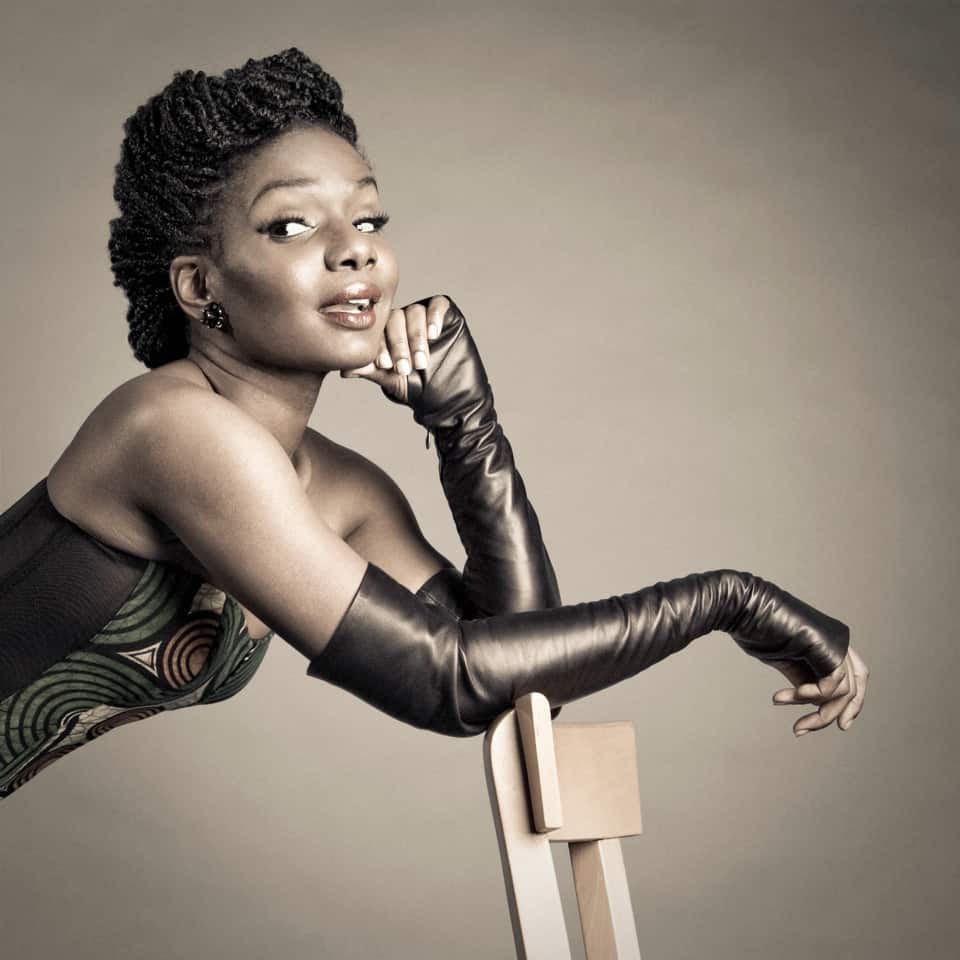The Emancipation of Ms. Lovely is a one-woman play starring Ngozi Paul (Da Kink in My Hair) and directed by Canadian Screen Award winner Zack Russell (She Stoops To Conquer). Staged at The Crow’s Theatre until April 8, the show was a Now Magazine critic’s pick at the 2015 SummerWorks Festival, where Ngozi Paul also won the Spotlight Award for her performance.
The Emancipation of Ms. Lovely follows the hilarious and relevant tale of a young woman’s search for love. During various stages of her life, Lovely struggles with her understanding of herself as a Black woman and awakens to her sexual identity as mirrored through popular culture. Personal stories from Lovely’s life interweave with the story of Sarah Baartman (The Venus Hottentot), the historical symbol of the commodification of Black women’s sexuality.
With today’s social and political climate being what it is, The Emancipation of Ms. Lovely is a sharp look at the struggle to find one’s own agency and the true discovery of self.
We caught up with Ngozi Paul to find out more about this powerful play.
SDTC: What’s it like to be in a one-woman play?
NP: I like to think of Emancipation as a play with three people in it because I perform with two musicians and there is a dialogue between us. The musicians represent our ancestors and they drive Lovely forward. I also think of the audience as my co-performers, so I never feel as though it is one woman. I like to think that we are all in this together when I am out there.
The play examines how Lovely struggles with her understanding of herself as a Black woman. Can you elaborate on this? What specific scenes tackle this subject?
The Emancipation of Ms. Lovely is a coming-of-age story, so throughout the play we see Lovely coming to terms with how she sees herself reflected in the world. As Black women, we are inherently born into a patriarchal and colonialist society where is “othering” is the norm.
The story of Sara Baartman really helps to illustrate the lens in which we are introduced to us. From scenes set in a junior high dance to church scenes, we laugh our way through many of the struggles of day-to-day life.
What conversations do you hope the play will spark?
I hope the show will encourage people to talk openly about sexuality and the way women are portrayed in popular culture. I hope people will talk about their own experiences growing up and how they came to see themselves in the world. Ultimately, I hope these conversations will encourage people to feel they are part of a common experience and find joy through that connection.
Self-love: how do we look for it? How do we achieve it?
Self-love is a practice. I think we achieve it by being honest with ourselves and getting to know what we need to love ourselves and then we have to cultivate it. The same way that you might practice anything else – you have to work on it becoming a habit.
I have found that my most consistent tool is meditation and silence. It gives me a chance to reconnect with myself and drown out of the external voices, and to really hear my truth. I think achieving self-love is different for everyone, but it starts with being honest with yourself, getting to know yourself, then listening to and honouring what you need.
What do you love most about this production?
I feel very privileged to be able to be on stage during this time. The world is feeling so crazy these days. There is so much chaos happening politically, socially, environmentally. To be given a stage to speak and share with the community is an honour and I love bringing joy and laughter.
We have a truly amazing team. Our musical team, Waleed and DJ L’Oqenz, is pure fire and they give me life. Our director, Zack, and choreographer, Roger, have crafted an amazing container to hold the story. I love doing the show and I love that a talk-back is part of every show. It’s great talking to the audience.
What have you discovered about yourself since beginning to work on The Emancipation of Ms. Lovely?
I have come to have a deeper understanding of myself as a woman. While working on The 1st Time Project, which is a multi-platform project on women’s first sexual experiences from an intercultural and intergenerational perspective, I was confronted with the fact that I needed to actually examine my own story before asking women to be brave and share their stories. I learned so much about the things I didn’t know about myself. I was introduced to sexual agency and self-knowledge. I learned the story of Sara Baartman, travelled to South Africa and studied with elders there about the culture. Working on Emancipation has been a real discovery of self.
What has the play made you reconsider or think about?
Working on Emancipation has straight-up changed my life. When you are writing and performing a play about self-love and freedom, it really challenges you to take a look in the mirror. It has forced me to walk the walk. I think a lot about joy and freedom and how to live that way on a day-to-day basis.![]()




 Follow Us On Instagram
Follow Us On Instagram
